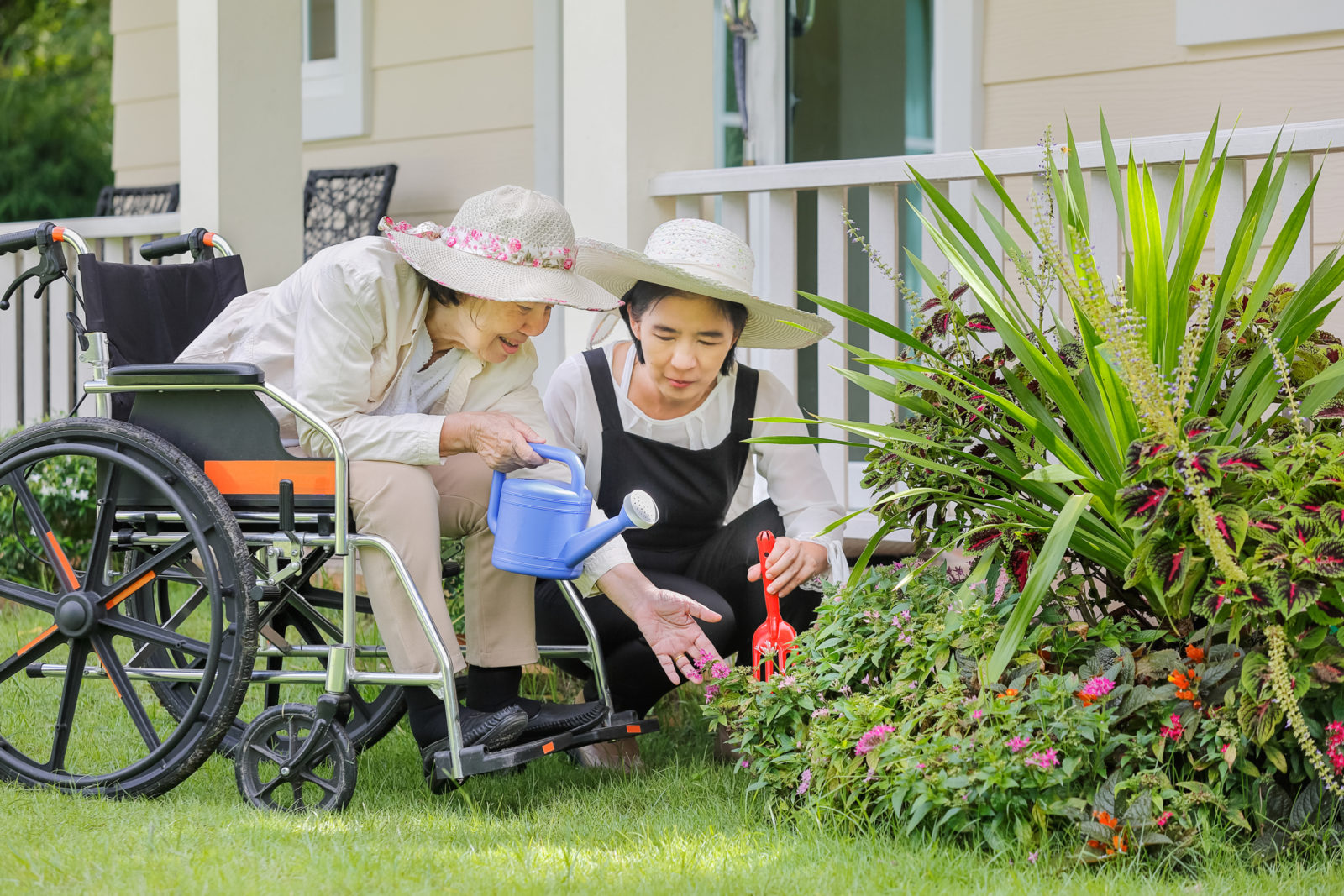How Caregivers Can Take Care of Themselves

November is National Family Caregivers Month. According to the Family Caregiver Alliance, there are approximately 34 million people who provide unpaid care to someone age 50 or older. The most common assistance takes the form of grocery shopping, food preparation, housekeeping, laundry, transportation, and medication administration as well as personal care such as dressing, bathing and grooming. About 57 percent of caregivers are performing tasks that nurses typically perform, including injections, tube feedings, and catheter and colostomy care. Half of family caregivers report that they had no choice in providing care for their loved one.
Many of these caregivers have full-time jobs and families of their own. Juggling these numerous responsibilities can often lead the caregiver to start neglecting their own needs. About 22 percent of caregivers say their health has gotten worse as a results of caregiving.
To help ensure caregivers are able to maintain their own health, it’s essential for them to make their own needs a priority – such as spending time with family and friends, exercising, or continuing their healthcare regimen. Being a good caregiver means taking care of yourself physically, emotionally, mentally and spiritually. It’s important to continue doing those things that make life worth living – whether that’s celebrating holidays and milestones or catching up with and a friend over lunch. Here are a few more tips to help caregivers create a balance among all the demands in their life.
If you’re one of the millions of people affected by caregiver stress, there are several things you can do. The first is to create a plan of action on how to deal with added stress in your life. People who take action to combat stress as opposed to ignoring it or falling into a feeling of helplessness are better able to deal with the added challenges in their lives. Here’s some more tips to help make caregivers beat the stress of caregiving.
Establish boundaries
Make the person you’re caring for aware of times you’re available to provide assistance and stick to a pre-arranged schedule. If you have something that comes up that alters that schedule, let them know and help them find an alternate source of assistance, if possible.
Let others in your life know your situation
If you have children, explain to them what’s going on and that you may be less available for them and you still love them and want to know what’s going on in their lives. Talk to your boss – you may be able to arrange a work schedule that accommodates your caregiving duties. Let coworkers know you appreciate their support during this time.
Understand that all feeling are normal
Caregiving can be a roller coaster of emotions. You may feel sadness that your loved one is changing physically or mentally. You may resent the time you spend with them because it’s taking time away from a career or family that you love. Acknowledge these feelings and understand they are completely normal and part of the role of being a caregiver.
Share your feelings with someone you trust
Find a friend you can confide in or see a therapist to help you sort out your emotions. Simply having an understanding ear can prove to be enormously healing. Support groups are also a wonderful way to connect with others who are likely experiencing many of the same emotions and challenges you are.
Ask family members for help
Don’t feel as if you’re the only one who can take care of your loved one. Other family members or friends are great people to lean on to take up some of the responsibilities. If they live far away, ask them if they would be willing to take a weekend or a week to help. If they aren’t able to provide support in person, ask for financial help for medications, food, or hiring outside help.
Consider hiring professional help
An in-home caregiver can provide numerous functions for your loved one, such as dressing, grooming, preparing meals, providing medication reminders, accompanying your loved to medical appointments and even light housekeeping. LifeCare Advocates, we can help you find in assessing your loved one’s needs and finding the best resources available for both them and for you in your role as caregiver.
![LifeCare Advocates [logo]](https://www.lcadvocates.com/wp-content/uploads/sites/270/2017/11/logo.png)